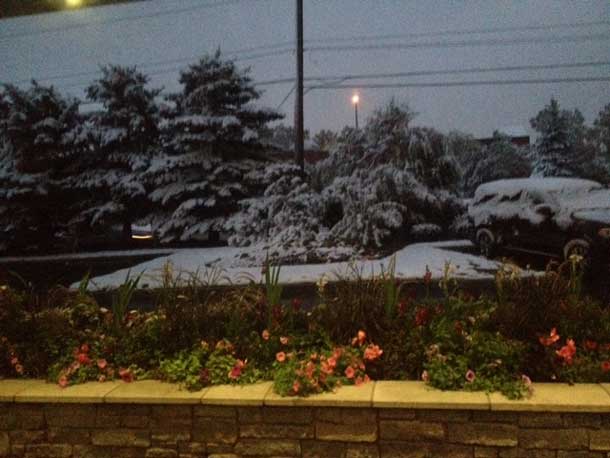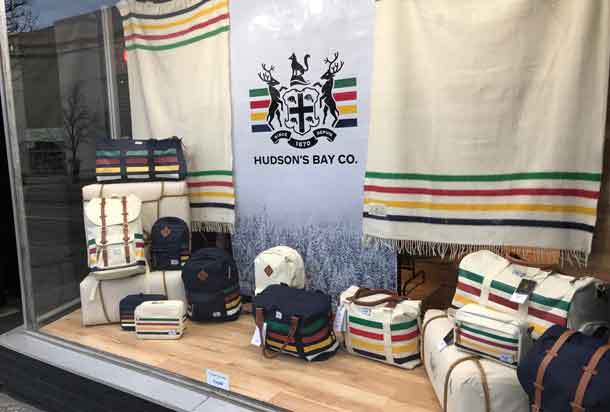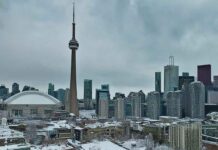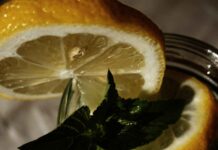
My wife, Margaret, and I were standing at the entrance to the Marriott Hotel ‘s island for taxis dwarfed by the rising height of the Calgary Tower adjacent to our location. ”We’re going to the Port o’ Call Hotel near the airport,” replied Margaret.
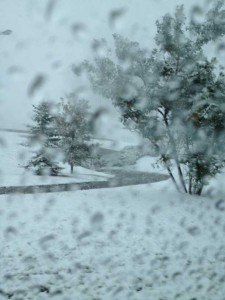
It was time to log out.
Our destination was merely a few blocks from his own residence.
Meaning he could cater to our journey then be gleeful about getting home as accumulations of wet snow and strong gusting winds showed no signs of stopping. It was a Monday where the morning Alberta newspapers invited readers to pause in knowing this was the day in Italy (September 8th) in 1504 when Michelangelo’s famous work called David, hand sculpted from local Carrara marble, was unveiled for the first time during the Renaissance in Florence. Standing akimbo, and naked, armed only with a sling David, of course, slew the raving madman Goliath. Michelangelo’s masterpiece became a valiant metaphor symbolizing the ‘giant’ issues, political underpinnings, a Florentine Nation saw in their upwelling against inequality issues and aggressive neighbouring provincial threats. A rather memorable news bulletin as we sipped tea and coffee beginning our day.
I thought of the beautiful colour photo of David in the paper while Margaret and I had stood waiting on cabs. Pausing to look way up into the lofty height of the Tower. All one could see was a dreary charcoal grey storm mass of thick clouds and the amazingly endless reams of tumbling snow that were soaking us to the marrow having dressed for an Autumn day with some sort of normalcy. The Tower, by the way, is 191 metres tall. It rises to 1,228 metres above sea level as Calgary’s airport is 1,084 metres above sea level. The Tower claims to be the highest one of its kind — in the world — with a 360 degree Observatory at the top.
As far as living above sea level goes our town of Thunder Bay is 199 metres above sea level. But to connect the Arts and Music of our hometown to this –on a clear day– particularly beautiful and enticing area not far from the foothills of the Canadian Rockies one recalls a song sung by Rodney Brown entitled Map of Dreams. It is such a perfect exceedingly adroitly written tune. About the Welsh pioneering free spirit David Thompson who first recorded and trail-marked sequences of rivers and landmarks here, in what would become Fort Calgary, in 1787 making his camping in tents with both Peigan and Blood (members of the post-Clovis originators) along the Bow River. His guides and translators, Thompson referred to as his Blackfoot Confederacy. Thompson’s breathtaking work as a cartographer is uniquely captured in Brown’s composition performed with the Thunder Bay Symphony accompanying him on the CD: Fort William.
However our journey had begun the week before as we transferred planes in Winnipeg from Ontario. Then landed in Alberta and rented a car to drive north of Airdrie to rendez-vous with our lad, Galen, in Olds for a first time visit in the season of fall. The weather could not have more blissful. Everywhere the wonders of summer’s green spaces joyously abundant with rainbow settings of flowers basking in 27 C temps.
There were wonderful little gardening skills showing themselves so vigorously green and charming in the manicuring of hedges around the perimeter of dwellings. So much so it was a continual reminder of the civilized spectrum of botanical beauty Victoria, BC exemplifies.
As well, here and there, outcroppings of things neatly shaded in greenery that the holly bushes and sprawling plants and English ivy and clinging tomato plants and corky textured deciduous trees gave the region a feeling of being a place like San Francisco. But, without an ocean nearby.
What we had the opportunity to see, and attend, were the Opening Weekend of 2014 games in Alberta’s Junior Hockey League. Two things were most impressive. The initial viewing of the Olds International Rink revealed a dedicated ‘wintry gardening’ their Zamboni crew had mustered preparing an exceptionally fast skating format for the players. The crew had been at it since early August.
That surface sponsored one of the best kinds of Opening matches with the home side of Olds almost making a phenomenal comeback. They were down 3-1, before realizing a kind of second wind, mounting a noble finale.
Their last shot was headed into the Alberta Kodiaks’ net as the last seconds ticked away. The puck was caught by the Kodiaks’ goalie as they held off a rally. Final score 4-3. There were certainly no losers in this “barn burner of a game” as Albertans would say.
The second point noted was the delightful attendance of some 1,003 in a town where the total population is just over 8,000. That kind of ratio shows the traditional focus of the sporting scene as Canada’s longest season of winter enters in every year.
Other days involved research at the well lit, generous and newly stocked and recently rebuilt Olds Library. Its staff, its access to information and cross-referencing plus educational themes via books, computers and micro-film (to virtually anywhere) could be rated as second to none. Its ease in accessing major collections, via the internet, along with its eagerness in accepting recommendations for new material and its cordial and sunny entrance brimming with stacks of good used books for re-sale made our stay.
What I found was something I’ve been meaning to read for a long while. Mitch Albom’s The Five People You’ll Meet In Heaven. A good title for the heavenly, peaceful time we shared among readers.
There was a park we had bookmarked. It is Centennial Park’s Remembrance Monuments. The founders have built a very solid and cherished site where Veterans are honoured for their dedication going back to both World Wars and the Korean War. To these townspeople this park is an embodiment of equal parts diligent landscaping, with fine symbolic rows of royal red poppies swaying along paths. Standing solidly were hand cut monuments immortalizing dates collected in maintaining our Commonwealth’s involvement in wars with the eternal echo of voices sounding in hymns from Ages Past.
Being away from one’s own timberline, out of touch with workout chores like wood splitting or grass cutting, necessarily fosters more time to read in the interim of travel.
Having picked up a recent copy of England’s The Economist magazine, in Winnipeg, made me aware once more of its brilliant content, with aptly relevant stories. Here were dispatches of newsworthy developments in places around the globe. They became passport entries for readers to Israel, Quebec, Peru, South Dakota, China, California, Vancouver, Ukraine, New Hampshire, Cambridge University. To a journalist writing about Gandhi’s historic era, and influences in India.
And particularly the very recent discovery of Lord Franklin’s Arctic ship in our Far North. A story that was readily researched and fittingly posted by NetNewsLeger’s fine Editor James Murray.
Then the vast impending vote to come in Scotland next week on September 18th. The home driven nature of this story was made very relevant as Margaret and I drove an Alberta highway, seemingly well away from any cosmopolitan politicking, when a farming truck came alongside before tanking an off ramp road. However, the driver smiled, gave a thumbs up motioning to the sticker on his rear window. It was a large decal of the National Flag of Scotland complete with the Rampart Lion’s crest.
But the possible scenario of a three centuries ancient Act of Union dissolving in a few days of political voting would have been unimaginable anytime earlier in our contemporary history. A separation Vote, like our own political persuasions with Quebec, would be a really total collapse and erosion of the binding matrix of masonry that’s bonded the Scots to Victorian Britain for so long. The analysts of the Economist and their perceptive treatment of virtually all subjects under scrutiny made for a weighing of plus and minus reporting that went overtime in being nobly objective.
Something I had written down in a notebook seemed apropos.
“For those who belong nowhere. To those who belong to one place. It’s almost too much to belong anywhere else.” It will be extremely revealing watching for the final result of the United Kingdom’s future holdings.
In the end as our cabbie made the last steering -wheel pull inside the warmth of his car heading to our car park he was actually splicing through a blinding, ominous snow force that engulfed our rush hour commute while he navigated us to our temporary lodging.
He safely parked at our entrance. I remembered a downtown Municipal bronze of a horse wearing a heavy thermal winter blanket where a passer by had written a sign. It said, ”Save a horse. Ride a cowboy in the snow.” Nothing like Western Canadian humour, eh?
But our cabbie had with his driving expertise brought us safely through Calgary’s earliest snowstorm in September. For Calgary had never seen this kind of old Man Winter’s excruciating–much too early for plants or animals– snow in all the annals of keeping Weather records here. While we began exiting our cabbie curled down his window again and called out, while thick snowflakes gathered quickly on his brow, ”I wish you two — from Lake Superior — a very Merry Christmas!’
”And, you…besides…” we called back in harmony.
Earlier we went for tea at James Joyce’s Restaurant in a zone of Stephen Avenue. As we entered there were downy, sheep’s wool flakes landing on our shoulders I thought of Joyce’s introduction to a novel he wrote.
In 1910 he wrote, ”SNOW…was general over Ireland that week. Every quilted green field and farm was engulfed by its snowy element.”
After we had lunch we began walking to the must-see indoor Devonian Gardens, not far from the Restaurant, in advance of making our way to the Marriott’s queue of cabs, another of Joyce’s lines was recalled by Margaret. ”They lived. Laughed much. Had loved being with others. And, then, left for home.”
Ronn Hartviksen
